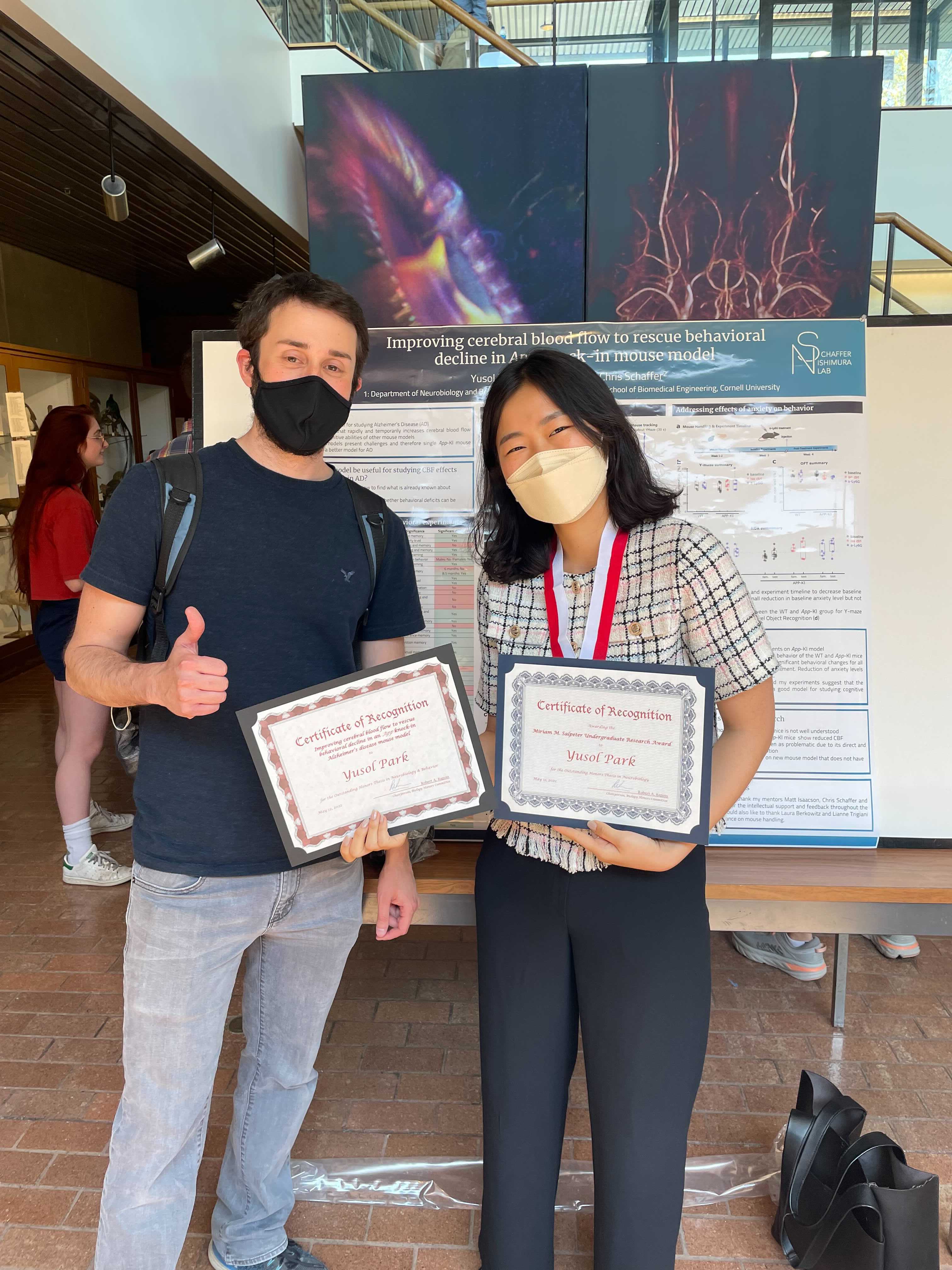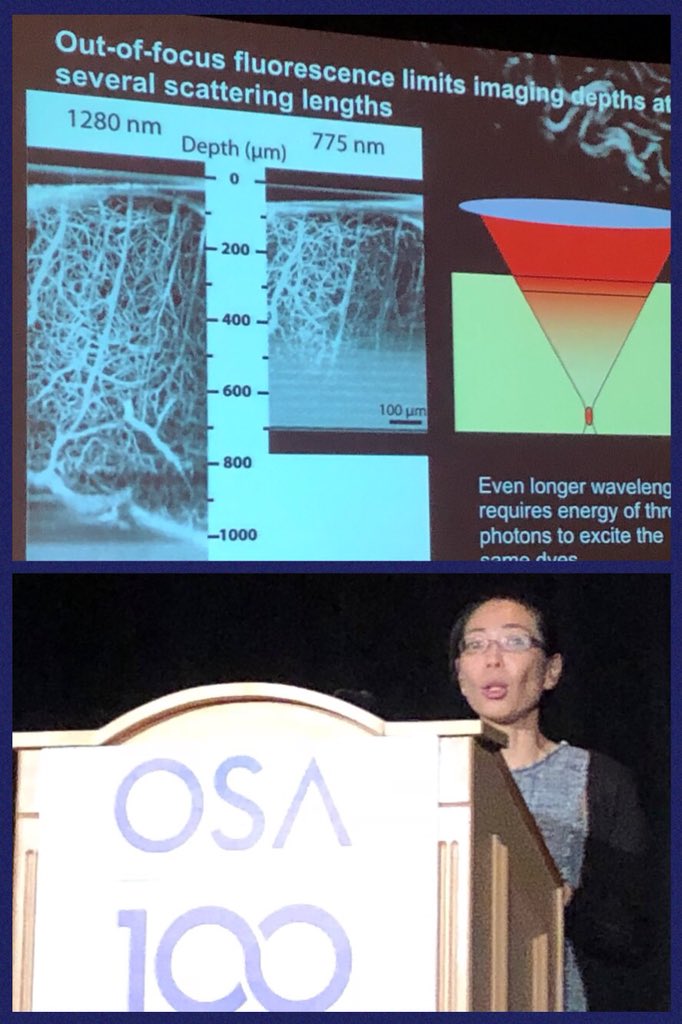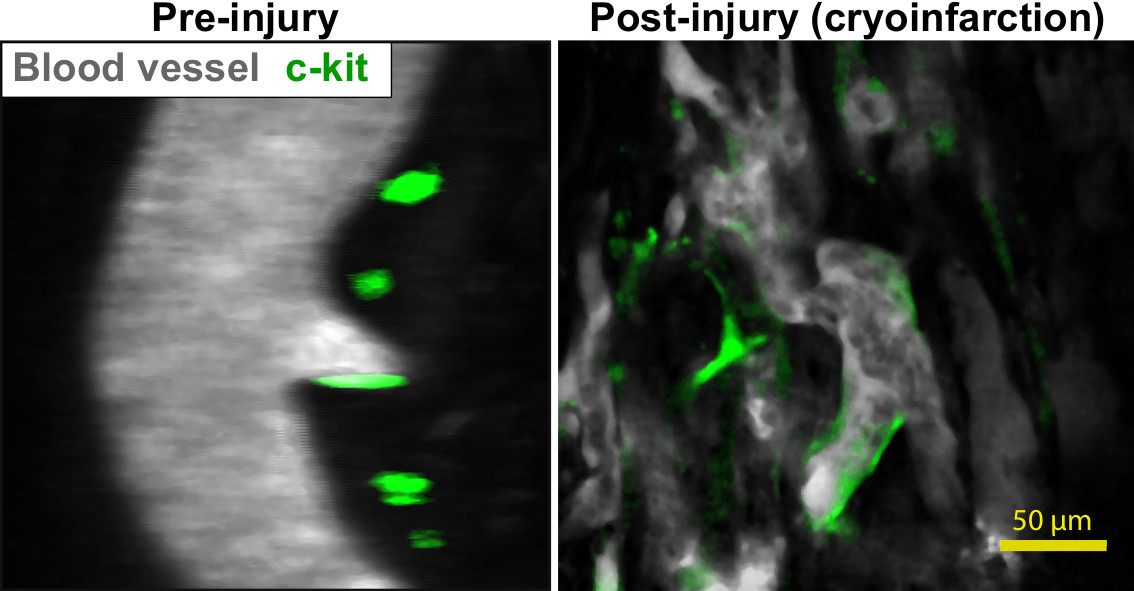Chris Schaffer is one of four Cornell faculty members awarded with the Kendall S. Carpenter Memorial Advising Award! The award honors professors and senior lecturers for sustained and distinguished contributions to undergraduate advising. Chris was praised for six years of service as a faculty-in-residence, and for making a "lasting impact” on undergraduates’ career trajectories by connecting them to conference and travel opportunities and offering guidance about next steps after graduation.
In partial onset epilepsy, seizures arise focally in the brain and often propagate. Patients frequently become refractory to medical management, leaving neurosurgery, which can cause neurologic deficits, as a primary treatment. In the cortex, focal seizures spread through horizontal connections in layers II/III, suggesting that severing these connections could block seizures while preserving function. In this webinar hosted by the Therapeutic Laser Applications Technical Group, Dr. Chris Schaffer will discuss how, in a mouse model of focal epilepsy, sub-surface laser-produced cuts encircling the seizure focus attenuate propagation without behavioral impairment. Dr. Schaffer will present how they induced focal neocortical epilepsy in mice, created laser cuts surrounding the seizure focus, and electrophysiologically recorded at multiple locations for 3-8 months. With laser cuts, only 5% of seizures propagated to the distant electrodes, compared to 85% in control animals. These cuts produced a modest decrease in cortical blood flow that recovered and left a ~20-µm wide scar with minimal collateral damage. When placed over the motor cortex, the cuts did not cause notable deficits in a skilled reaching task. Femtosecond laser cuts hold promise as a novel neurosurgical approach for intractable focal cortical epilepsy. Check the talk here!

Yusol Park was awarded the 2021 Miriam M. Saltpeter Award for outstanding undergraduate honors thesis in neurobiology. Yusol worked with Matt Isaacson to develop her thesis, meticulously describing the behavioral deficits of the APP-Nl-G-F Alzhiemer's disease mouse model. Congrats Yusol!

Nozomi talked about "exploring natural behaviors of cells in the wild with in vivo multiphoton microscopy". The congress was in the Diplomat Beach Resort, Hollywood, Florida United States

Following a heart attack, patients often experience long term consequences, due to the limited capacity of the heart to repair following injury. Some cells in the heart have been implicated in the repair of blood vessels and heart muscle cells after injury. This project aims to use in vivo multiphoton microscopy of the heart to understand how these cells interact with their environment following injury. Title of project is " The Influence of Hypoxia on Cardiovascular Precursor Cells Following Injury using In Vivo Multiphoton Microscopy"
Liz Wayne is one of eight recipients of the 2013 Cook Award. The Cook Award is named in honor of the late Constance E. Cook, Cornell's first woman vice president, and the late Professor Emeritus Alice E. Cook, founding member of the Advisory Committee on the Status of Women. The Award honors individuals who deserve recognition for their commitment to women's issues and their contributions for changing the climate for women at Cornell. Liz was nominated by Dr. Sheri Notaro in acknowledgement of her achievements and contribution to the Cornell community. In particular, for organizing the Northeast Conference for Undergraduate Women in Physics. The awards ceremony will be held February 28th, 2013.
In two new papers that appeared this week, the Schaffer-Nishimura lab continues to increase our understanding of how bleeds from small blood vessels impact the health and function of nearby brain cells. A short review paper that appeared in the journal Stroke outlines differences in impact of a clot or hemorrhage to a small blood vessel in the brain, emphasizing the greater destruction caused by occlusions and the potential role of inflammation in driving cognitive dysfunction after microhemorrhage. An original article that appeared in PLoS ONE shows that microhemorrhages cause a temporary loss of the ability of nearby neurons to respond to a peripheral stimulus, but that these cells recover normal function in the hours after the injury. Together these articles advance our understanding of how small brain bleeds may contribute to cognitive decline.